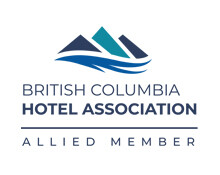In the hospitality industry, mobile technology is rapidly modernizing operations and changing guest expectations. Our mobile phones can do almost anything these days, including unlocking doors!
Mobile key (or digital key) technology is no longer reserved for global hotel chains and luxury resorts. Thanks to a growing number of keyless access providers and ease of implementation, mobile keys are now accessible to independent properties, from hotels to vacation rentals to hostels.
How Do Mobile Keys Work?
Using Bluetooth or NFC (near field communication) technology, mobile key applications turn a guest’s mobile phone into their room key. Mobile key solutions work best when integrated with the property management system (PMS) to automate room key delivery for an efficient, secure and modern check-in process that elevates the guest experience.
It works like this: Once a booking has been made, a booking confirmation email is sent to the guest, containing a link to download the mobile key app before arrival. Upon guest arrival, the PMS automatically lets the mobile key platform know when the guest checks in and the mobile key platform responds by sending a secure digital key to the guest’s mobile phone. The guest can then use the mobile key app to unlock the door with the tap of a button on the phone screen, or simply by holding the phone close to the door. The mobile key can also be used to access other hotel facilities, such as the gym, elevator or parking garage. Upon check-out, the PMS automatically alerts the mobile key platform and the digital key is disabled.
Mobile keys can be implemented without replacing existing lock systems, making this exciting technology easily accessible to independent properties. Existing locks can be upgraded by installing a Bluetooth device, for example, enabling mobile key compatibility while also maintaining keycard functionality.
Advantages of Mobile Keys
Guests want mobile applications that enhance the guest experience through self-service and personalization. From convenience and efficiency to sustainability and security, mobile key technology unlocks various advantages for both guests and hotel operators.
An Efficient, Personalized Check-in Process
The check-in experience is a major contributing factor to overall guest satisfaction scores. Integral to a seamless hotel self-check-in process, mobile key solutions allow guests to skip the front desk entirely and head straight to their room upon arrival. While that might at first seem counter-intuitive to the concept of hospitality, self-check-in improves efficiency and reduces friction by removing the obligatory stop at the front desk, and results in a more personalized experience where guests gain immediate, secure access to their room without having to identify themselves at the front desk first.
Self-check-in with mobile key greatly reduces the manual administrative load on staff. Instead of looking up reservations, charging credit cards and assigning keycards for every guest, staff can focus on actual hospitality—any hotel self-check-in experience should be supported by personnel who are available to assist guests as required and to welcome every guest with a smile.
Eliminating the need to manage keycards, mobile key technology not only speeds up the check-in process, but also improves the entire guest experience and automates access management for more efficient, secure operations.
Guests appreciate the convenience and security of mobile keys throughout their stay. Physical room keys and keycards have a way of getting themselves lost, even if only in the abyss of a handbag, but our mobile phones are always within easy reach. Which leads us to our next point…
Improved Security
Offering several layers of security, mobile key technology is the safest form of hotel access today. Physical keys and keycards are easily misplaced or stolen and can be used immediately to access a guestroom, but guest’s mobile phones are unlikely to go astray. Even if a phone is lost or stolen, the mobile key is protected first by the password, passcode or fingerprint ID required to access the phone, then by the password, passcode or fingerprint ID required to access the mobile room key. On top of that, mobile keys are protected against hacking by the latest encryption technology and transmitted in real time (only within range of the door lock) via a secure channel.
As much as for improvements in efficiency, hotels are adopting mobile keys to enhance guest and hotel security.
Sustainable & Cost-Effective
Magstripe keycards are still the cheapest form of hotel room access, but they are prone to demagnetization, negatively impacting the guest experience. For this reason, hoteliers have been turning to more dependable RFID keycard systems, despite the greater cost. While mobile keys are more expensive than magstripe keycards, they deliver a positive return on investment when compared to RFID.
Both magstripe and RFID keycards come with a high cost to the environment however, and this is where mobile keys beat all keycards hands down. Eliminating plastic keycard waste (it’s estimated that a typical 200-room hotel disposes of approximately 12,000 keycards per year), mobile key technology significantly reduces a property’s environmental footprint and is preferred by increasingly eco-conscious travelers too.
Mobile technology is changing the way we operate as we use our phones for managing more and more aspects of our lives. Elevating the guest experience and security, and saving hoteliers time by automating guest access, mobile keys are steadily becoming mainstream in the hotel environment. WebRezPro PMS integrates with a growing list of mobile key providers, including OpenKey, STAYmyway and Lynx, to automate mobile key delivery for seamless guest check-in and effortless access management.




























